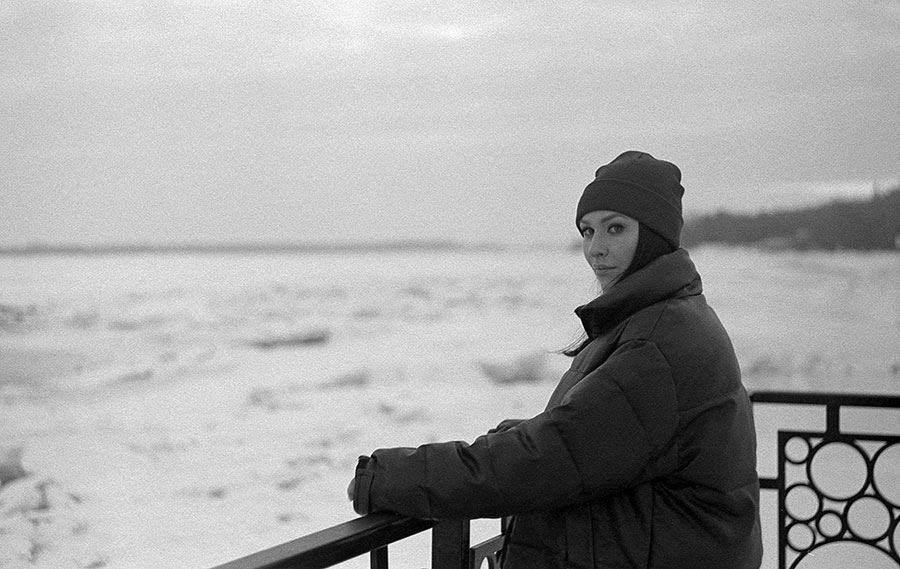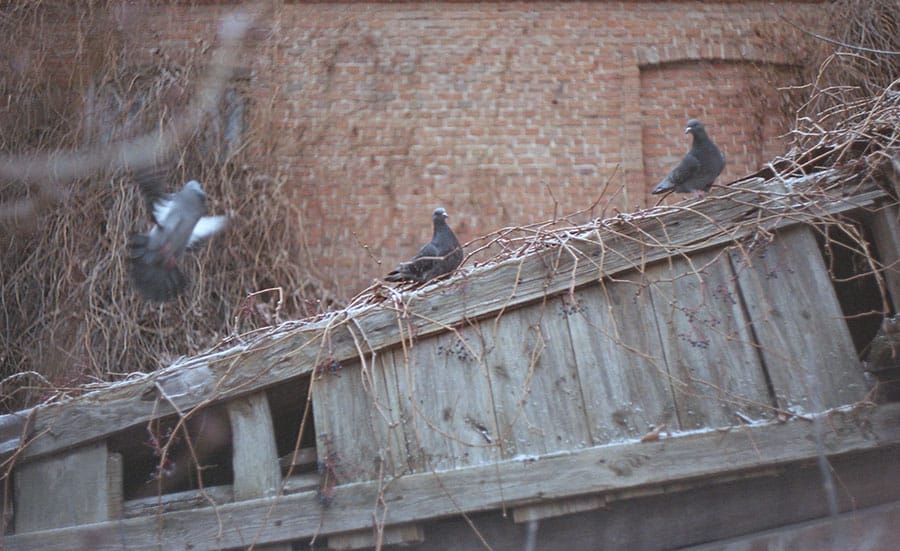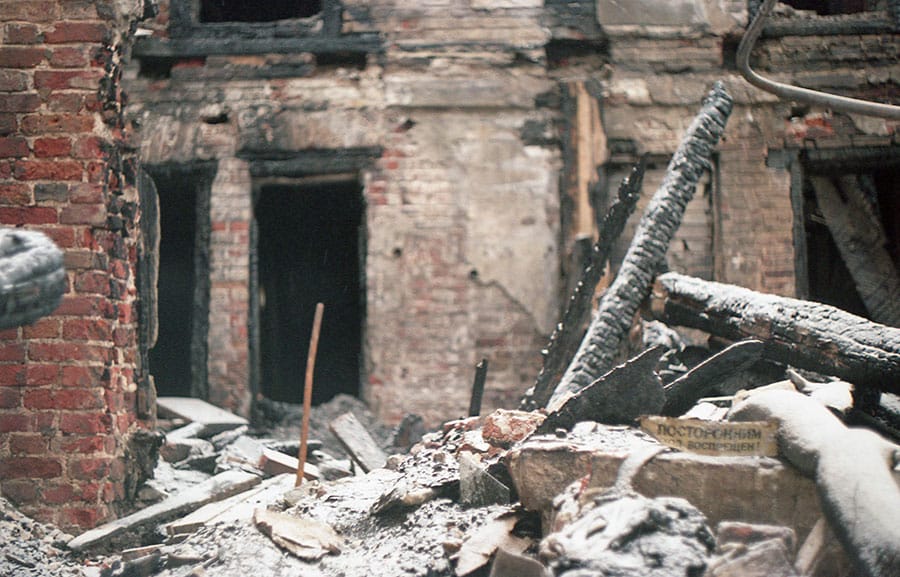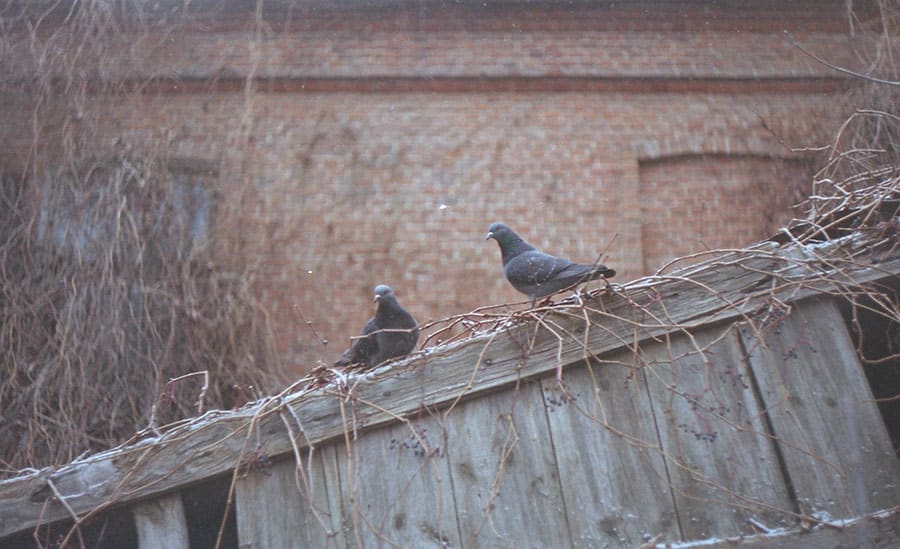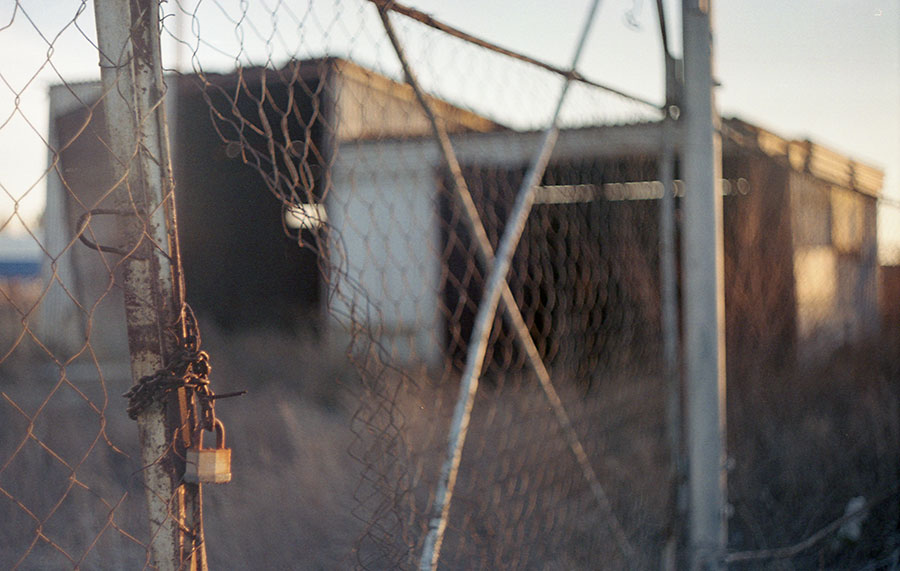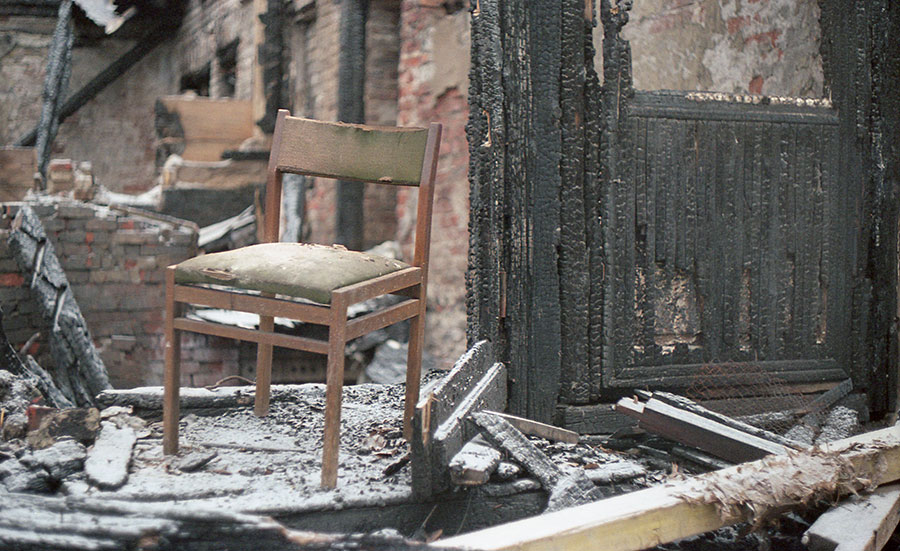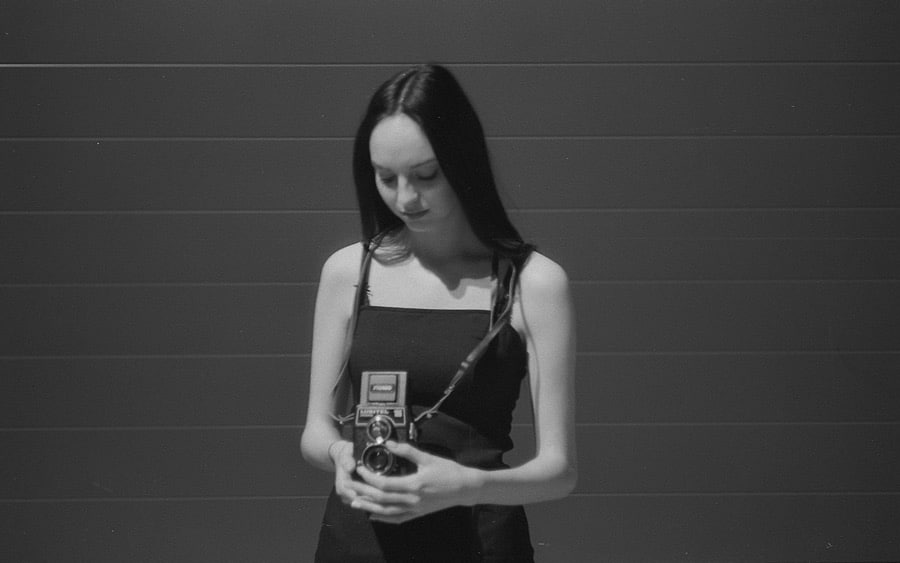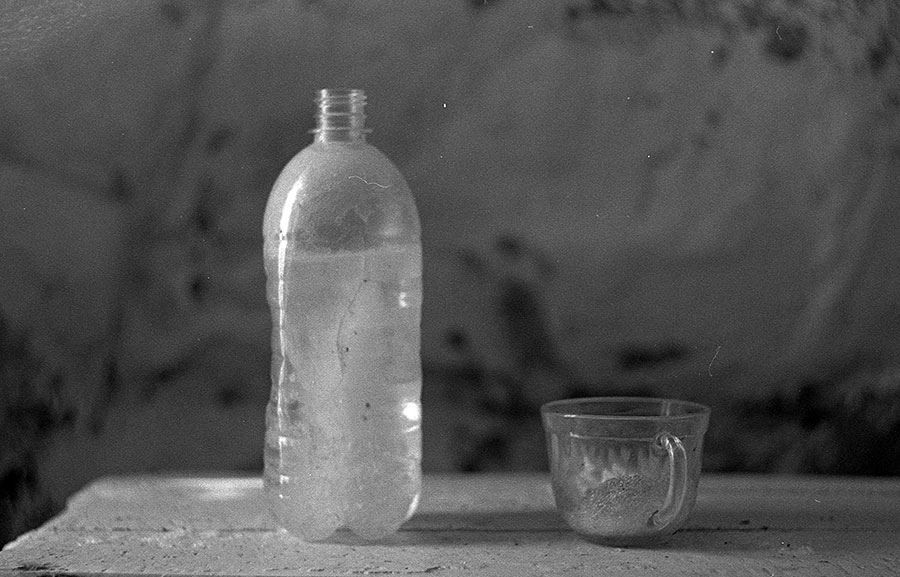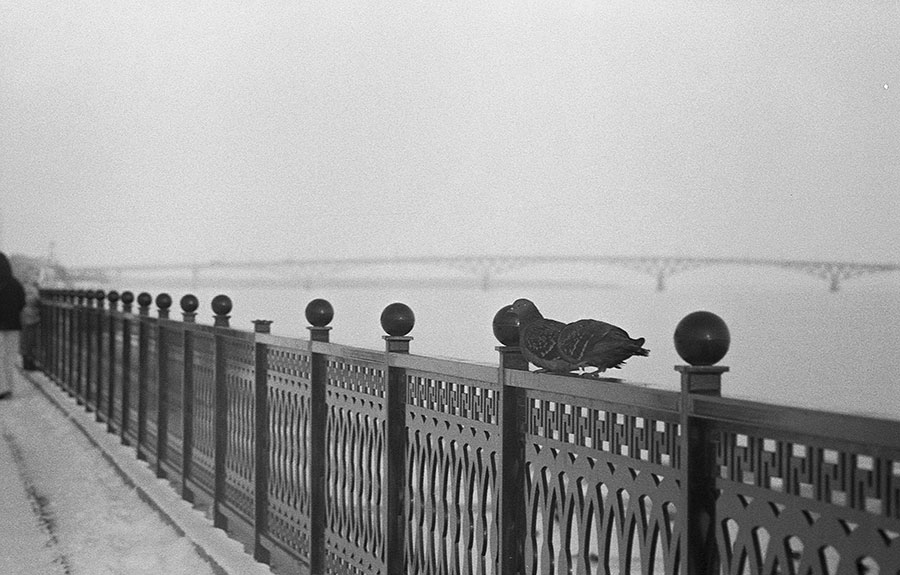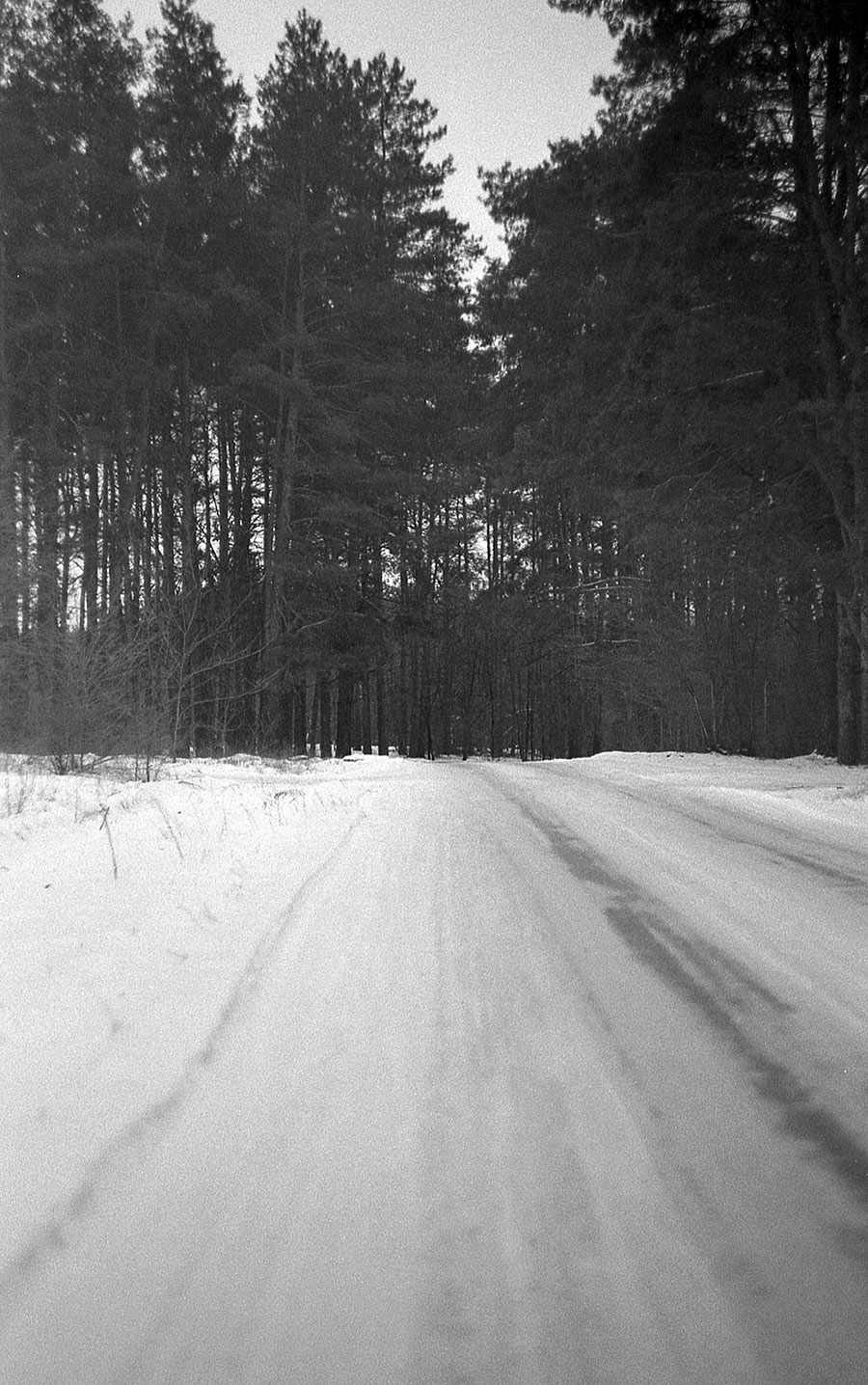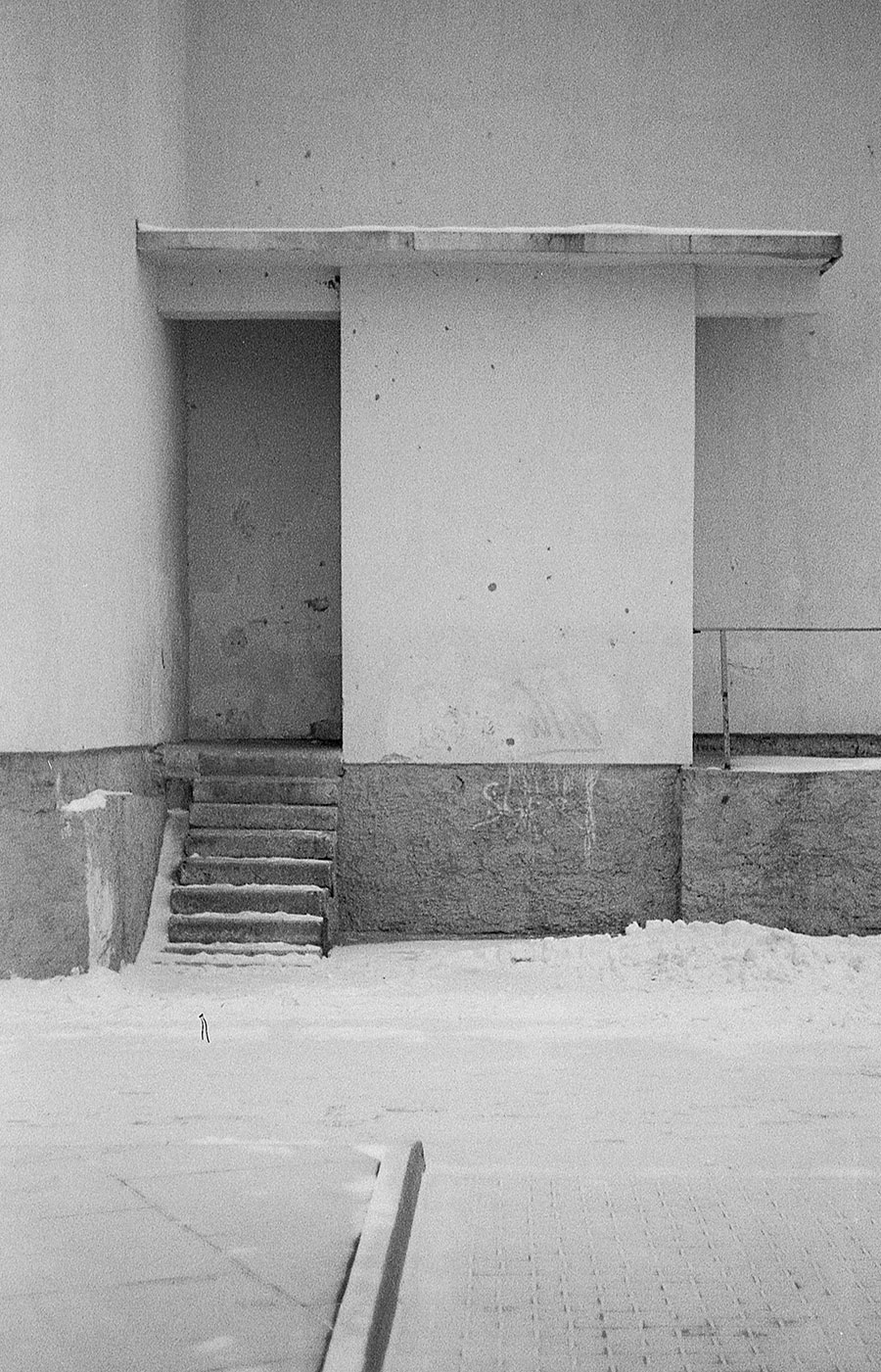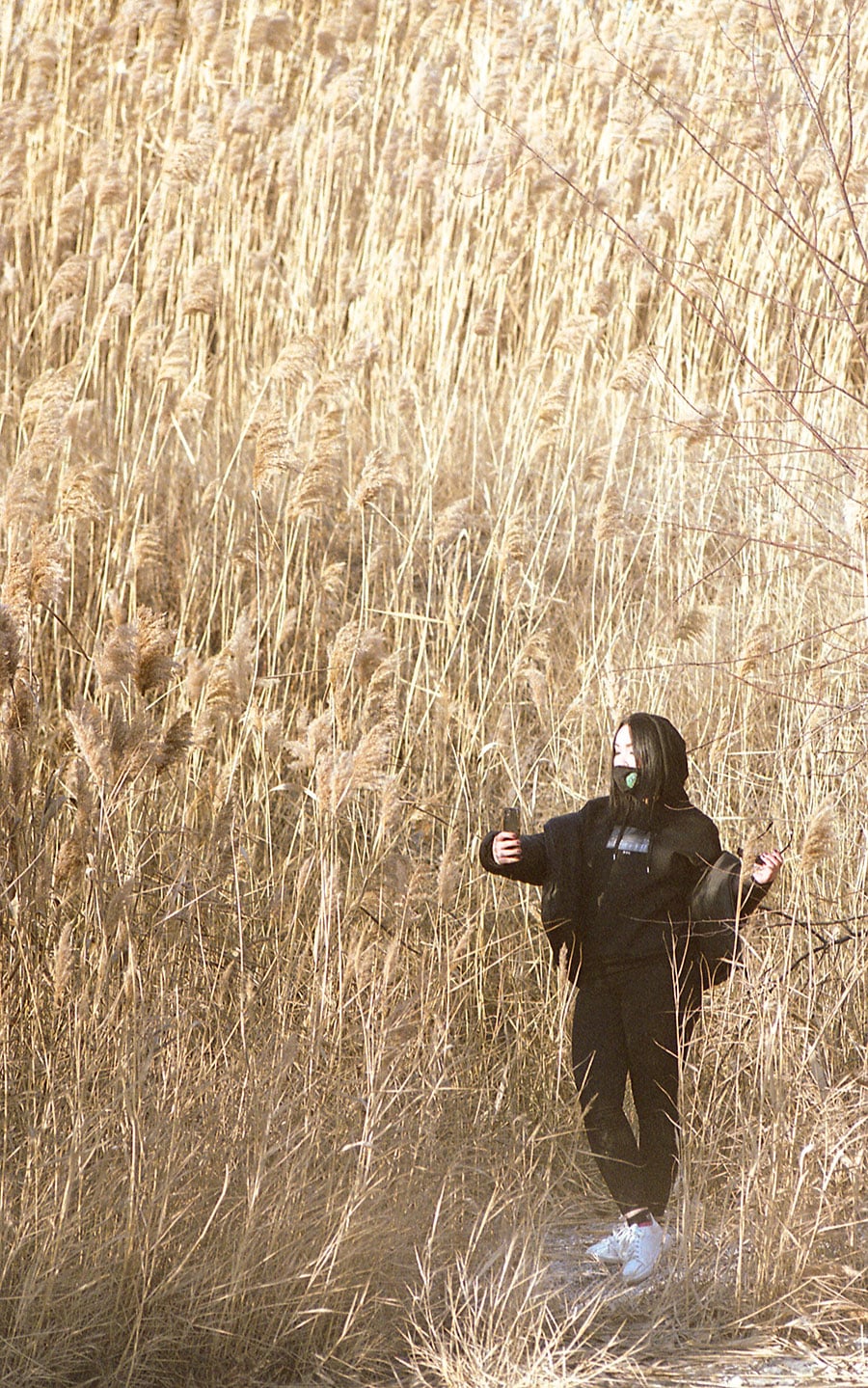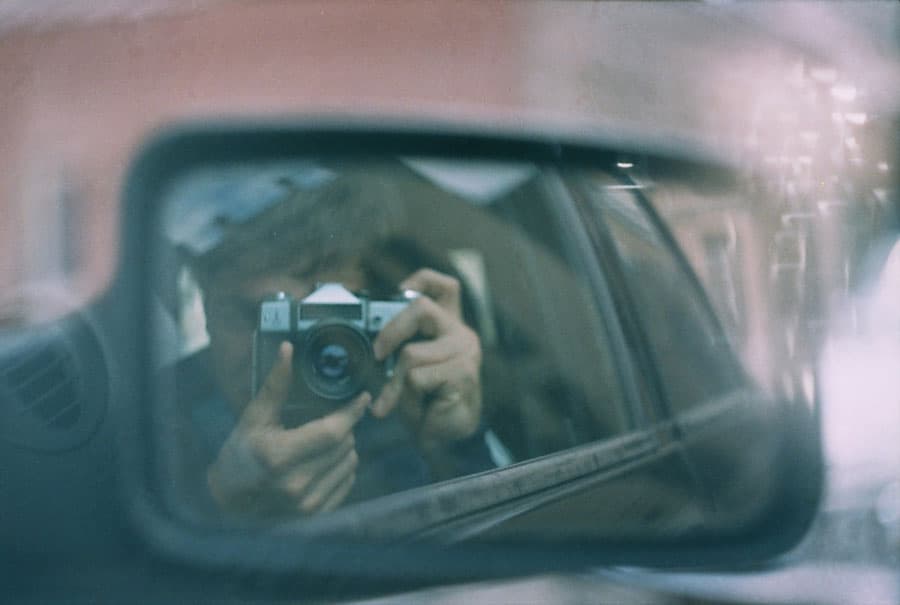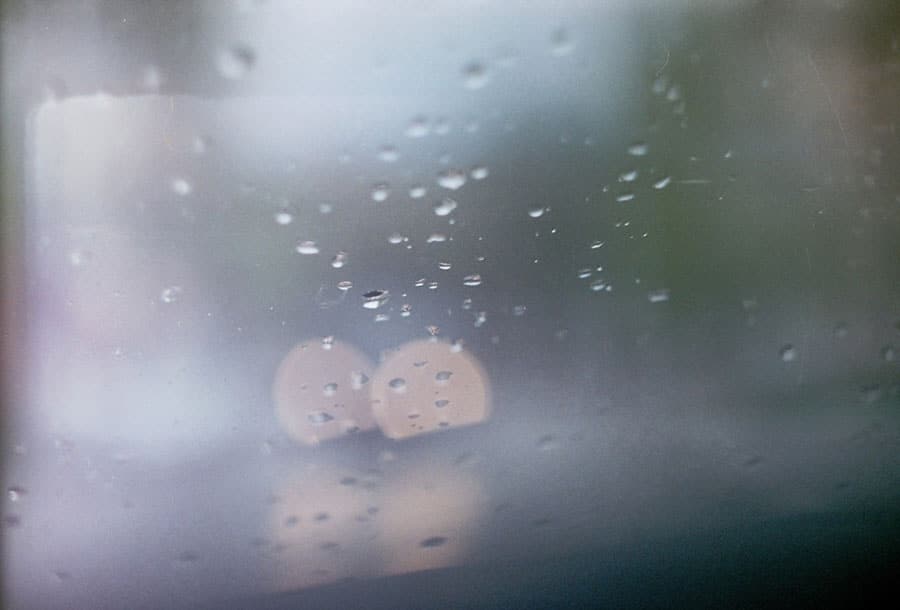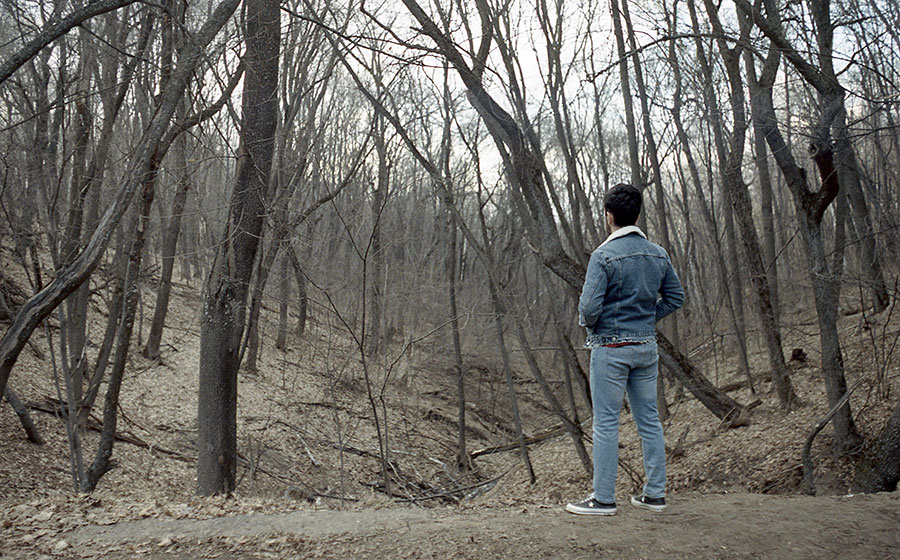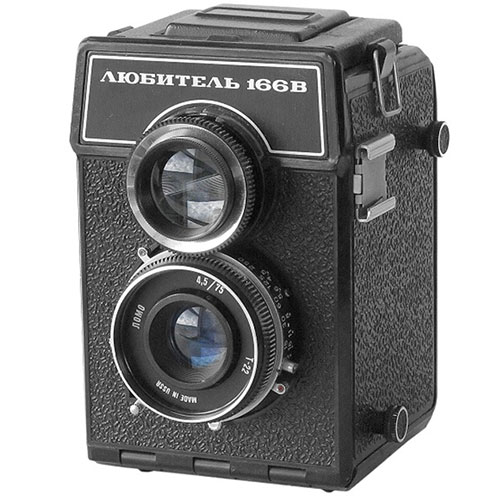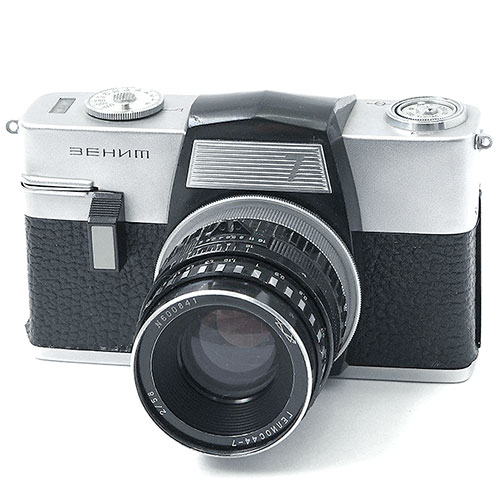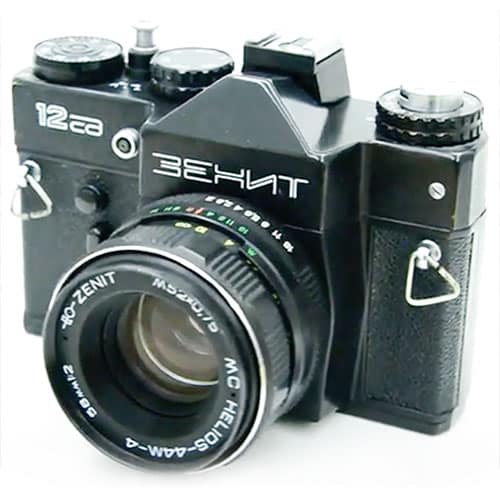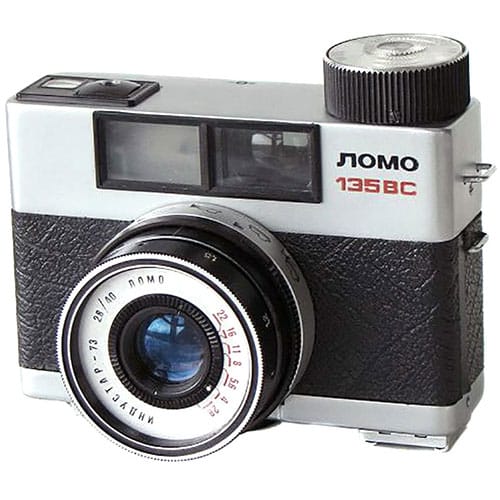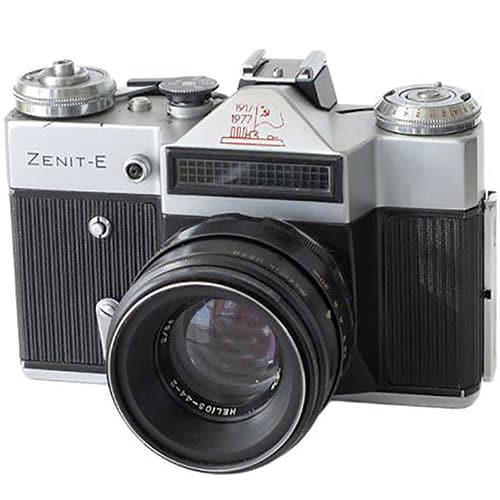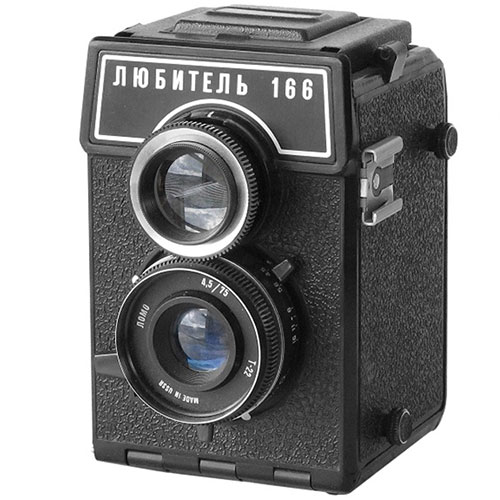Zenit-10
Zenit-10 is a Soviet 35mm SLR camera with a selenium exposure meter produced from 1981 to 1982. Zenit-10 is a further development of the Zenit-E camera.
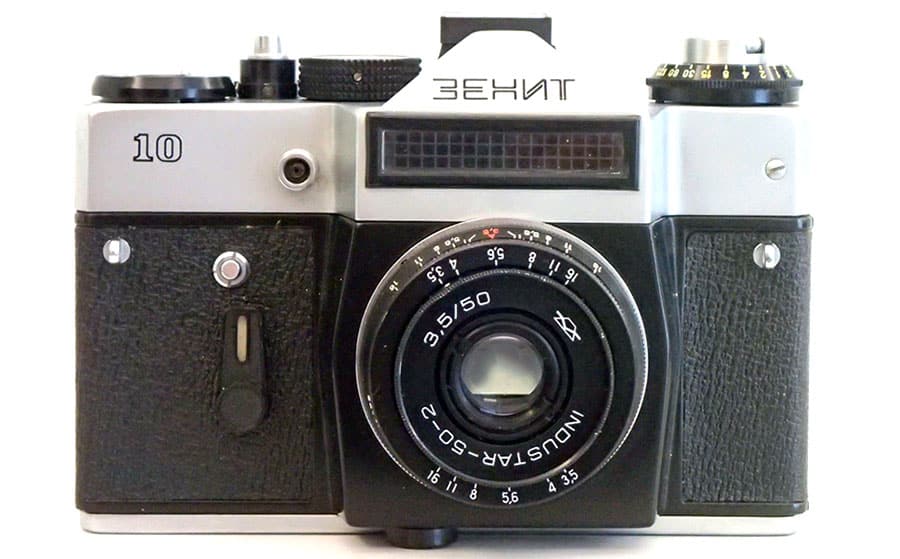
The production of Zenit-10 cameras was started in 1981 when the KMZ plant decided to start the production of a hybrid camera using a body and shutter with a “non-rotating” shutter speed knob from Zenit-12 (export version of the Zenit-TTL) and a non-conjugated selenium exposure meter from the Zenit-E.
Zenit-10 Specifications
- Type: 35mm SLR camera
- Manufacturer: KMZ plant
- Production period: from 1981 to 1982
- Format: 24x36cm on 135 film
- Lens mount: m42 thread mount
- Lens: Helios-44m f2.0/58
- Viewfinder image field size: 20×28mm
- Shutter: focal-plane shutter with speeds from 1/30 to 1/500 sec.
- Viewfinder: SLR with non-removable pentaprism
- Lighmeter: built-in selenium light meter
- Flash synchronisation: sync socket “X”, sync speeds from 1/30 s and longer.
- Selftimer: mechanical
- Weight: 950 grams
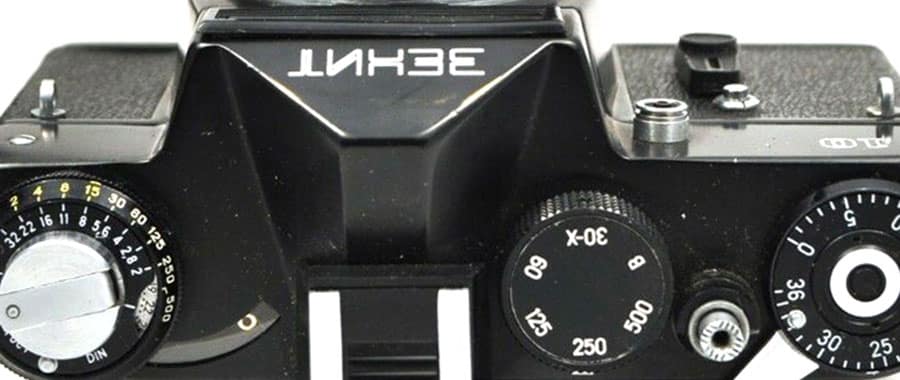
The Zenit-10 camera was discontinued in favor of the Zenit-11 camera – a similar SLR camera but with a depth-of-field preview system. In addition, the production of a camera similar to the SLR from the current article was launched at BelOMO (Zenit-ET).
The camera, like all its predecessors, is designed for 35 mm film with a frame size of 24×36 mm. As before, the camera is made of an aluminum alloy with an opening back panel.
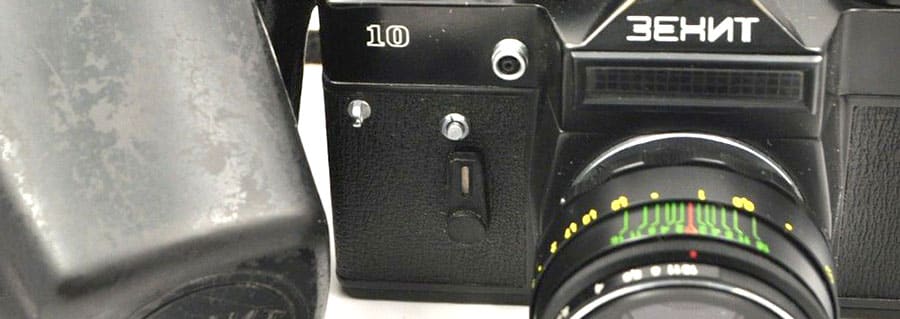
The camera was equipped with an Industar-50-2 3.5 / 50 or Helios-44-2 2/58 lens. The camera has a standard M42 threaded mount, which means that you can use a huge number of Soviet, German, and Japanese lenses.
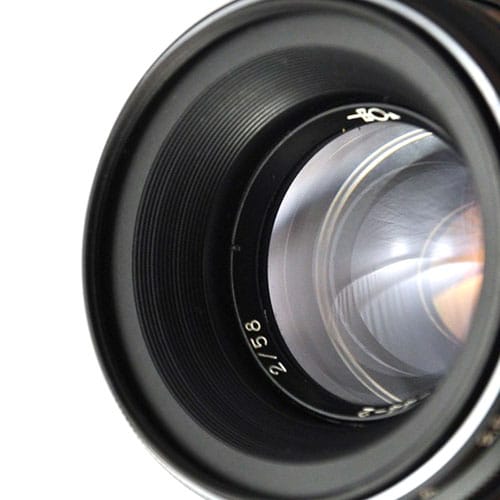
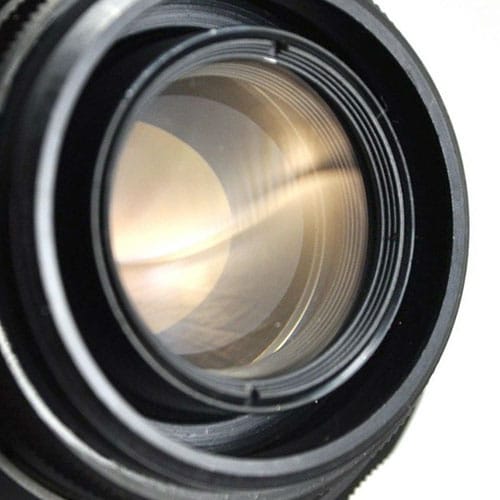
The camera had a standard and familiar shutter with shutter speeds of 1/30, 1/60, 1/125, 1/250, 1/500, and B ((inherited from Zorky, which in turn was a copy of the Leica II camera)). As we have said repeatedly, it is very strange why the USSR continued to use such a backward shutter for many decades.
The fact is that for most tasks such a range of shutter speeds was enough, but nevertheless, the absence of fast and slow shutter speeds severely constrained the photographer and did not provide much room for creativity.
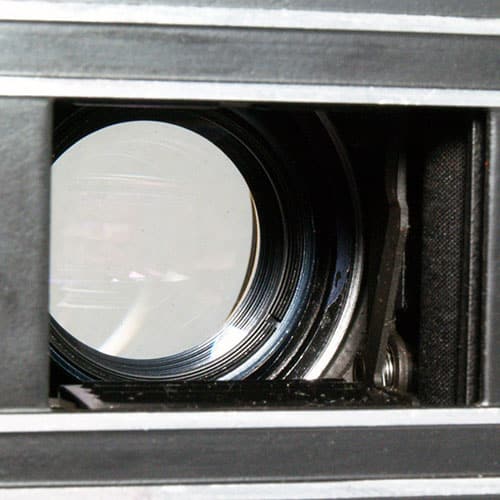
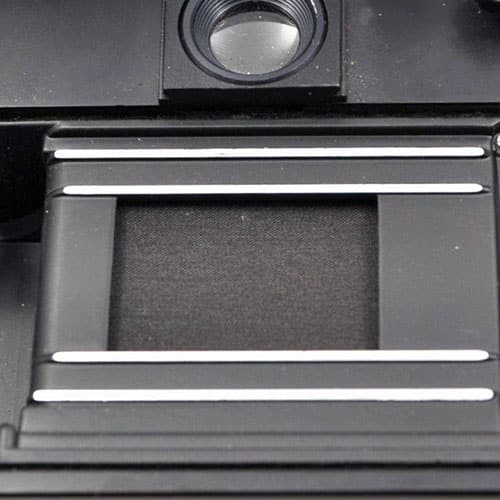
But given that this is the Soviet Union, one must understand that the camera had few innovations compared to previous models. And this means that all the cons from the previous models were also present in this soviet SLR camera.
For example, the camera viewfinder still shows only 65% of the future frame. Because of this, it will be very difficult to correctly determine the boundaries of the future photo.
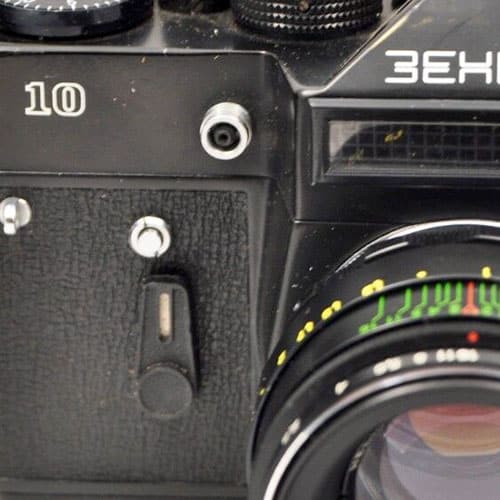
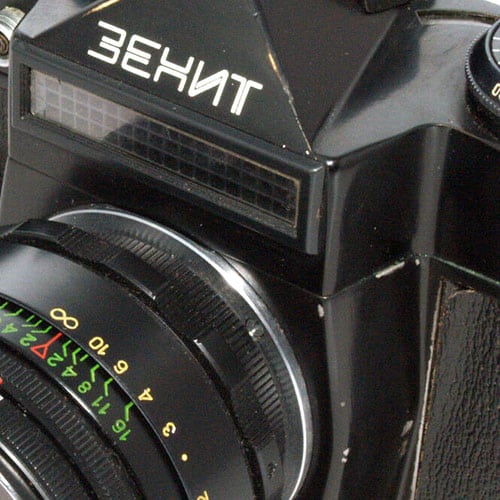
But the good news is that the camera had a film advance lever. If it seems to you that such a mandatory part cannot be called an advantage, then look, for example, at the Smena-8M camera, which was produced without this element until the 90s.
By the way, among other things, we must remember that selenium tends to deteriorate over the years. This means that it is very difficult nowadays to find this soveit SLR camera with an accurately working exposure meter.
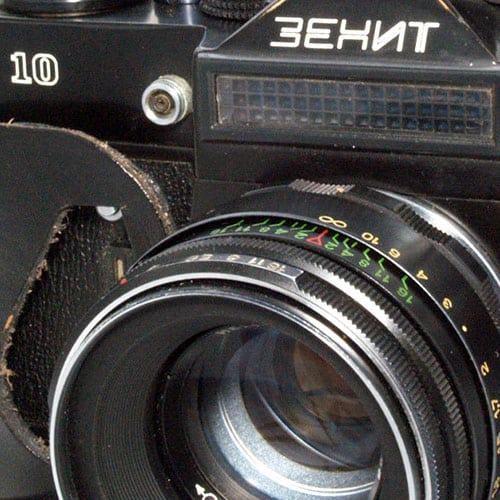
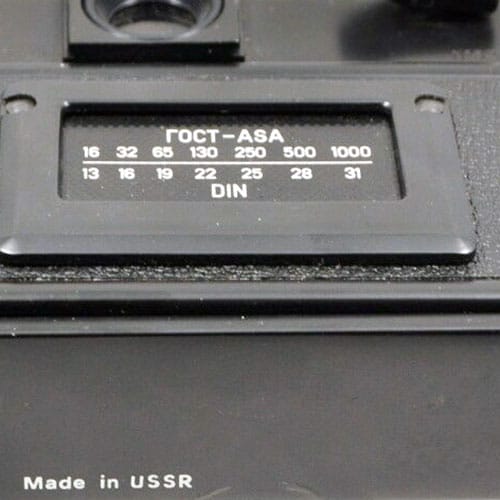
Conclusion
So, what can we say about this soviet SLR camera? With that said, is it fair to say that this is a bad camera that shouldn’t be bought?
This is a pretty good camera. In this camera, as in other KMZ SLR cameras, there is everything you need for comfortable photography. But at the same time, the Zenit-10 is a rather rare camera, and it is very difficult to find.
So if you don’t have a goal to buy this particular camera, then you should probably look towards more common cameras, for example, Zenit-TTL or Zenit-122. These cameras are easy enough to find in good condition and at a low price.
ZENIT-10 PHOTOS
